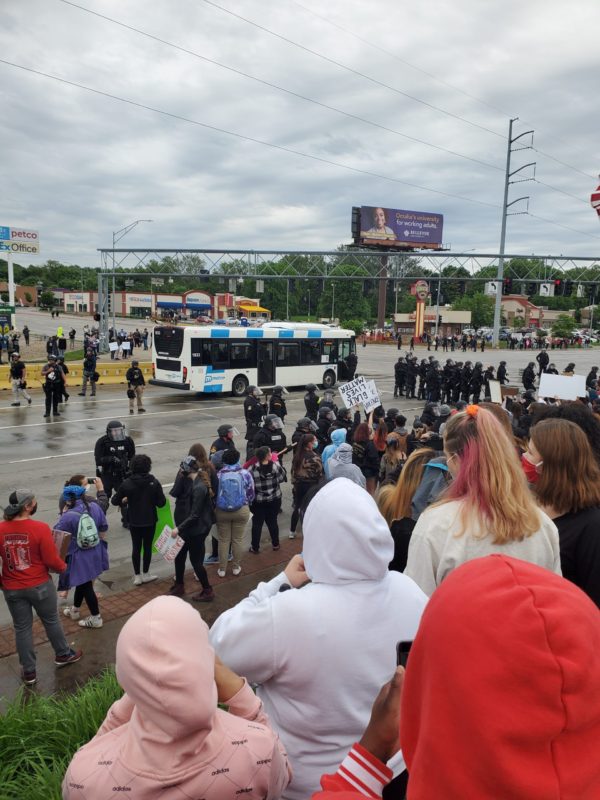The Omaha-Lincoln People's Archive
Read community member stories below
Interviewee: (00:00) But um, I was driving, I’d just gotten my license, my dad had just put the finishing touches on my new …
Interviewee A: When my children were little, I told them very simply, if we get pulled over you stay very still. You …
I learned to hate the pigs when I was a 16 year old girl. I was a high school student at Bellevue …
I attend day one protest as well as day 2. Day 2, the tone was very different on 72nd and Dodge. I …
Me and my mother drove by and I shouted out the back seat driver side window Fuck Jake Gardner. We drove by …
I was was sitting at the entrance of Target on 72nd st, my mother was standing there by me when police shot …
Attending protests for the murder of Kenneth Jones by the Omaha Police Department. I arrived at the OPD Headquarters shortly after 6pm, …
ABOUT THE ARCHIVE
This archive aims to collect, preserve, and share accounts of police violence and its effects on the community members of Omaha and Lincoln, NE. This is a forum of accountability, for the community members to heal from their experiences, and for others to understand that oppression, violence, and racism are still thriving within the Omaha and Lincoln police departments. This archive and its contents are not to be used for legal purposes, nor are the testimonies fact-checked or majorly altered in any way before posting.
Why a community archive
Police reports often account for a sequence of events that video/forensic evidence later disproves or challenges. In many cases, these initial police reports allow officers to completely escape accountability. This pattern is seen in full-force in Omaha, with the murder of Zachary Bear Heels in 2017, when he was handcuffed, tazed 12+ times, and punched repeatedly in the head by four OPD officers, who were later cleared of all charges related to his death that night. It is seen in the murders and wrongful deaths of Kenneth Jones and others. It is seen in the daily lives and encounters of the citizens within these communities of Omaha and Lincoln.
It is within this context that the Omaha-Lincoln People’s Archive of Police Violence was established.
